47 start with C start with C
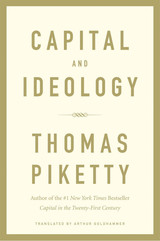
A New York Times Bestseller
An NPR Best Book of the Year
The epic successor to one of the most important books of the century: at once a retelling of global history, a scathing critique of contemporary politics, and a bold proposal for a new and fairer economic system.
Thomas Piketty’s bestselling Capital in the Twenty-First Century galvanized global debate about inequality. In this audacious follow-up, Piketty challenges us to revolutionize how we think about politics, ideology, and history. He exposes the ideas that have sustained inequality for the past millennium, reveals why the shallow politics of right and left are failing us today, and outlines the structure of a fairer economic system.
Our economy, Piketty observes, is not a natural fact. Markets, profits, and capital are all historical constructs that depend on choices. Piketty explores the material and ideological interactions of conflicting social groups that have given us slavery, serfdom, colonialism, communism, and hypercapitalism, shaping the lives of billions. He concludes that the great driver of human progress over the centuries has been the struggle for equality and education and not, as often argued, the assertion of property rights or the pursuit of stability. The new era of extreme inequality that has derailed that progress since the 1980s, he shows, is partly a reaction against communism, but it is also the fruit of ignorance, intellectual specialization, and our drift toward the dead-end politics of identity.
Once we understand this, we can begin to envision a more balanced approach to economics and politics. Piketty argues for a new “participatory” socialism, a system founded on an ideology of equality, social property, education, and the sharing of knowledge and power. Capital and Ideology is destined to be one of the indispensable books of our time, a work that will not only help us understand the world, but that will change it.
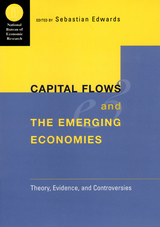
Together these studies offer a new understanding of the empirical relationship between capital flows, international trade, and economic performance, and also afford key insights into realms of major policy concern.
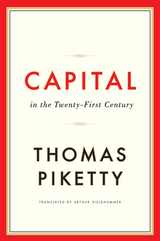
A New York Times #1 Bestseller
An Amazon #1 Bestseller
A Wall Street Journal #1 Bestseller
A USA Today Bestseller
A Sunday Times Bestseller
A Guardian Best Book of the 21st Century
Winner of the Financial Times and McKinsey Business Book of the Year Award
Winner of the British Academy Medal
Finalist, National Book Critics Circle Award
What are the grand dynamics that drive the accumulation and distribution of capital? Questions about the long-term evolution of inequality, the concentration of wealth, and the prospects for economic growth lie at the heart of political economy. But satisfactory answers have been hard to find for lack of adequate data and clear guiding theories. In Capital in the Twenty-First Century, Thomas Piketty analyzes a unique collection of data from twenty countries, ranging as far back as the eighteenth century, to uncover key economic and social patterns. His findings will transform debate and set the agenda for the next generation of thought about wealth and inequality.
Piketty shows that modern economic growth and the diffusion of knowledge have allowed us to avoid inequalities on the apocalyptic scale predicted by Karl Marx. But we have not modified the deep structures of capital and inequality as much as we thought in the optimistic decades following World War II. The main driver of inequality—the tendency of returns on capital to exceed the rate of economic growth—today threatens to generate extreme inequalities that stir discontent and undermine democratic values. But economic trends are not acts of God. Political action has curbed dangerous inequalities in the past, Piketty says, and may do so again.
A work of extraordinary ambition, originality, and rigor, Capital in the Twenty-First Century reorients our understanding of economic history and confronts us with sobering lessons for today.
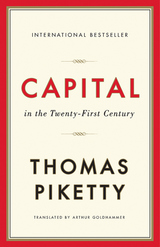
A New York Times #1 Bestseller
An Amazon #1 Bestseller
A Wall Street Journal #1 Bestseller
A USA Today Bestseller
A Sunday Times Bestseller
A Guardian Best Book of the 21st Century
Winner of the Financial Times and McKinsey Business Book of the Year Award
Winner of the British Academy Medal
Finalist, National Book Critics Circle Award
“It seems safe to say that Capital in the Twenty-First Century, the magnum opus of the French economist Thomas Piketty, will be the most important economics book of the year—and maybe of the decade.”
—Paul Krugman, New York Times
“The book aims to revolutionize the way people think about the economic history of the past two centuries. It may well manage the feat.”
—The Economist
“Piketty’s Capital in the Twenty-First Century is an intellectual tour de force, a triumph of economic history over the theoretical, mathematical modeling that has come to dominate the economics profession in recent years.”
—Steven Pearlstein, Washington Post
“Piketty has written an extraordinarily important book…In its scale and sweep it brings us back to the founders of political economy.”
—Martin Wolf, Financial Times
“A sweeping account of rising inequality…Piketty has written a book that nobody interested in a defining issue of our era can afford to ignore.”
—John Cassidy, New Yorker
“Stands a fair chance of becoming the most influential work of economics yet published in our young century. It is the most important study of inequality in over fifty years.”
—Timothy Shenk, The Nation
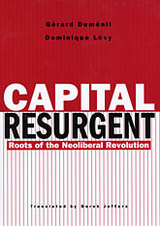
The advent of economic neoliberalism in the 1980s triggered a shift in the world economy. In the three decades following World War II, now considered a golden age of capitalism, economic growth was high and income inequality decreasing. But in the mid-1970s this social compact was broken as the world economy entered the stagflation crisis, following a decline in the profitability of capital. This crisis opened a new phase of stagnating growth and wages, and unemployment. Interest rates as well as dividend flows rose, and income inequality widened.
Economists Gérard Duménil and Dominique Lévy show that, despite free market platitudes, neoliberalism was a planned effort by financial interests against the postwar Keynesian compromise. The cluster of neoliberal policies--including privatization, liberalization of world trade, and reduction in state welfare benefits--is an expression of the power of finance in the world economy.
The sequence of events initiated by neoliberalism was not unprecedented. In the late nineteenth century, when economic conditions were similar to those of the 1970s, a structural crisis led to the first financial hegemony culminating in the speculative boom of the late 1920s. The authors argue persuasively for stabilizing the world economy before we run headlong into another economic disaster.
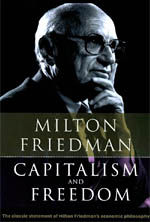
"Milton Friedman is one of the nation's outstanding economists, distinguished for remarkable analytical powers and technical virtuosity. He is unfailingly enlightening, independent, courageous, penetrating, and above all, stimulating."-Henry Hazlitt, Newsweek
"It is a rare professor who greatly alters the thinking of his professional colleagues. It's an even rarer one who helps transform the world. Friedman has done both."-Stephen Chapman, Chicago Tribune
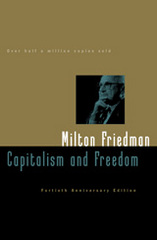
How can we benefit from the promise of government while avoiding the threat it poses to individual freedom? In this classic book, Milton Friedman provides the definitive statement of his immensely influential economic philosophy—one in which competitive capitalism serves as both a device for achieving economic freedom and a necessary condition for political freedom. The result is an accessible text that has sold well over half a million copies in English, has been translated into eighteen languages, and shows every sign of becoming more and more influential as time goes on.
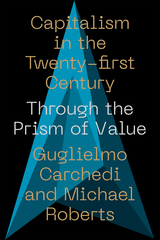
Contemporary capitalism is always evolving. From digital technologies to cryptocurrencies, current trends in political economy are much discussed, but often little understood. So where can we turn for clarity? As Michael Roberts and Guglielmo Carchedi argue, new trends don't necessarily call for a new theory.
In Capitalism in the 21st Century, the authors show how Marx's law of value explains numerous issues in our modern world. In both advanced economies and the periphery, value theory provides a piercing analytical framework through which we can approach topics as varied as labor, profitability, technology, the environment, the role of China, imperialism, and the state.
An ambitious work that will appeal to both heterodox economists and labor movement activists alike, as it demonstrates the ongoing contemporary relevance of Marxist theory to current trends in political economy.
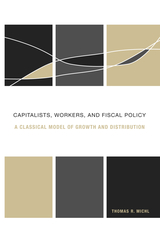
Drawing on the work of the classical-Marxian economists and their modern successors, Capitalists, Workers, and Fiscal Policy sets forth a new model of economic growth and distribution, and applies it to two major policy issues: public debt and social security.
The book homes in specifically on the problem of fiscal policy, examining the ways that taxation and government spending affect the distribution of wealth and income as well as the rate of economic growth. Thomas Michl’s model shows that public debt has a regressive effect on wealth distribution. It also demonstrates that the accumulation of wealth by public authorities, for example, in the form of a pension reserve such as the U.S. social security trust fund, can have a progressive effect on wealth distribution, both directly (since it represents ownership by the citizenry) and indirectly through its general equilibrium effects on the structure of accumulation. The book’s findings provide an analytical foundation for a macroeconomic policy of using fiscal surpluses to accumulate a public pension reserve fund that serves to effect a progressive redistribution of wealth.
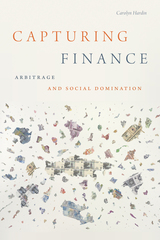
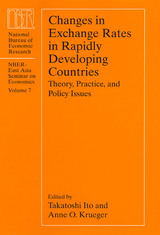
Historically, most developing nations have employed strict exchange rate controls and heavy protection of domestic industry-policies now thought to be at odds with sustainable and desirable rates of economic growth. By contrast, many East Asian nations maintained exchange rate regimes designed to achieve an attractive climate for exports and an "outer-oriented" development strategy. The result has been rapid and consistent economic growth over the past few decades.
Changes in Exchange Rates in Rapidly Developing Countries explores the impact of such diverse exchange control regimes in both historical and regional contexts, focusing particular attention on East Asia. This comprehensive, carefully researched volume will surely become a standard reference for scholars and policymakers.

Departing from agonistic win-or-lose rhetoric in the classical Greek tradition that has so strongly influenced Western thinking, Blankenship proposes that we ourselves are changed (“changing the subject” or the self) when we focus on trying to understand rather than simply changing an Other. This work is informed by her experiences growing up in the conservative South and now working as a professor in New York City, as well as the stories and examples of three people working across profound social, political, class, and gender differences: Jane Addams’s activist work on behalf of immigrants and domestic workers in Gilded Age Chicago; the social media advocacy of Brazilian rap star and former maid Joyce Fernandes for domestic worker labor reform; and the online activist work of Justin Lee, a queer Christian who advocates for greater understanding and inclusion of LGBTQ+ people in conservative Christian churches.
A much-needed book in the current political climate, Changing the Subject charts new theoretical ground and proposes ways of integrating principles of rhetorical empathy in our everyday lives to help fight the temptations of despair and disengagement. The book will appeal to students, scholars, and teachers of rhetoric and composition as well as people outside the academy in search of new ways of engaging across differences.
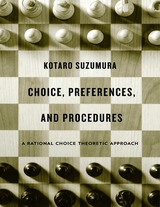
Kotaro Suzumura is one of the world’s foremost thinkers in social choice theory and welfare economics. Bringing together essays that have become classics in the field, Choice, Preferences, and Procedures examines foundational issues of normative economics and collective decision making.
Social choice theory seeks to critically assess and rationally design economic mechanisms for improving human life. An important part of Suzumura’s contribution over the past forty years has entailed fusion of abstract microeconomic ideas with an understanding of real-world economies in a coherent analysis. This volume of selected essays reveals the evolution of Suzumura’s thinking over his career. Groundbreaking papers explore the nature of individual and social choice and the idea of assigning value to freedom of choice, different forms of rationality, and concepts of individual rights, equity, and fairness.
Suzumura elucidates his innovative approach for recognizing interpersonal comparisons in the vein of Adam Smith’s notion of sympathy and expounds the effect of paying due attention to nonconsequential features, such as the opportunity to choose and the procedure for decision making, along with the standard consequential features. Analyzing the role of economic competition, Suzumura points out how restricting competition may, in some circumstances, improve social welfare. This is not to recommend government regulation rather than market competition but to emphasize the importance of procedural features in a competitive context. He concludes with illuminating essays on the history of economic thought, focusing on the ideas of Vilfredo Pareto, Arthur Pigou, John Hicks, and Paul Samuelson.
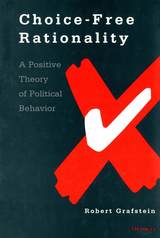
Grafstein argues that, instead of basing the analysis on the assumption that an actor will maximise her expected utility or her utility given the probability that the event will happen, we should define rationality as the maximisation of expected utility conditional on the probability that her act will bring the event about. This definition of utility, based on the work of Richard Jeffrey, restores the consequences of an individual's act to rational choice analysis. For example, in making a decision to vote, a conditional expected utility maximiser will compare the likelihood of victory for her preferred candidate given her own participation with the likelihood of a victory given her abstention.
The author shows the theoretical implications of this new definition of rationality and then uses it to explain certain aspects of ethnic identity and mobilization, ideology, and altruism and intertemporal choice. He then explores the implications of this idea for policy analysis and econometrics. This book will provoke a debate about how work based in rational choice theories is done.
Robert Grafstein is Professor of Political Science, University of Georgia.
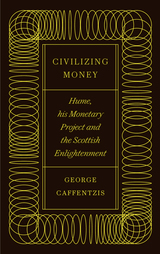
Taking the Scottish Enlightenment philosopher David Hume as its subject, this book breaks new ground in focusing its lens on a little-studied aspect of Hume’s thinking: his understanding of money.
George Caffentzis makes both an intervention in the field of monetary philosophy and into Marxian conceptions of the relation between philosophy and capitalist development. He vividly charts the ways in which Hume’s philosophy directly informed the project of ‘civilizing’ the people of the Scottish Highlands and pacifying the English proletariat in response to the revolts of both groups at the heart of the empire.
Built on careful historical and philosophical detective work, Civilizing Money offers a stimulating and radical political reading of the ways in which Hume’s fundamental philosophical claims performed concrete political functions.
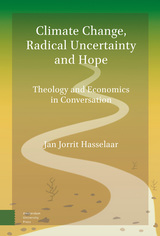
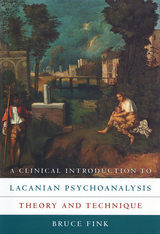
"The goal of my teaching has always been, and remains, to train analysts."
--Jacques Lacan, Seminar XI, 209
Arguably the most profound psychoanalytic thinker since Freud, and deeply influential in many fields, Jacques Lacan often seems opaque to those he most wanted to reach. These are the readers Bruce Fink addresses in this clear and practical account of Lacan's highly original approach to therapy. Written by a clinician for clinicians, Fink's Introduction is an invaluable guide to Lacanian psychoanalysis, how it's done, and how it differs from other forms of therapy. While elucidating many of Lacan's theoretical notions, the book does so from the perspective of the practitioner faced with the pressing questions of diagnosis, what therapeutic stance to adopt, how to involve the patient, and how to bring about change.
Fink provides a comprehensive overview of Lacanian analysis, explaining the analyst's aims and interventions at each point in the treatment. He uses four case studies to elucidate Lacan's unique structural approach to diagnosis. These cases, taking up both theoretical and clinical issues in Lacan's views of psychosis, perversion, and neurosis, highlight the very different approaches to treatment that different situations demand.
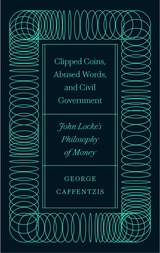
This book situates John Locke’s philosophy of knowledge and his political theory within his engagement in British monetary debates of the 17th and 18th century.
Anchored in extensive archival research, George Caffentzis offers the most expansive reading of Locke’s economic thought to date, contextualizing it within the expansion of capitalist accumulation on a world scale and the universality of money as a medium of exchange.
Updated with a new introduction by Paul Rekret, a new foreword by Harry Cleaver and new material by the author, Clipped Coins, Abused Words, and Civil Government continues to make a significant intervention in contemporary debates around the history of capitalism, colonialism and philosophy.

It inspired written testimonials from William McKinley, Thomas Edison, and Sarah Bernhardt; merited a medal from Pope Leo XIII; produced "exhilaration and lasting euphoria" in Sigmund Freud. Once the stimulant of choice of the enlightened and the elite, cocaine has become, a century later, a plague, ravaging the lives of millions. This book is the first to draw together all the facts about this pervasive drug--from its natural occurrence in a tea-like native South American plant to its devastating appearance as crack in the inner cities of the United States.
Drawing on the latest work in medicine, psychiatry, neuroscience, pharmacology, epidemiology, social work, and sociology, the volume is a highly accessible reference on the history and use of cocaine, its physical and psychological effects, and the etiology and epidemiology of cocaine addiction. It also provides a critical evaluation of the pharmaceutical agents and psychosocial interventions that have been used to treat this addiction. Author Jerome J. Platt answers such basic questions as: What is cocaine? What forms does it come in? How is it administered? What does it do? What are the medical complications of cocaine addiction? What are the treatments, and how successful are they?
Uniquely comprehensive, Cocaine Addiction makes all the latest information on this urgent subject readily available to medical professionals and practitioners, social workers and scholars, and anyone who cares to know more about this perennially troubling drug.
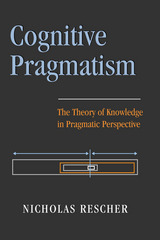
Nicholas Rescher tackles the major questions of philosophical inquiry, pondering the nature of truth and existence. In the authoritative voice and calculated manner that we’ve come to expect from this distinguished philosopher, Rescher argues that the development of knowledge is a practice, pursued by humans because we have a need for its products. This pragmatic approach satisfies our innate urge as humans to make sense of our surroundings.
Taking his discussion down to the level of particular details, and addressing such topics as inductive validation, hypostatization fallacies, and counterfactual reasoning, Rescher abandons abstract generalities in favor of concrete specifics. For example, philosophers usually insist that to reason logically from a counterfactual, we must imagine a possible world in which the statement is fact. But Rescher argues that there’s no need to attempt to accept the facts of a world outside our cognition in order to reason from them. He shows us how we can use our own natural system of prioritizing, our own understanding of the fundamental, to resolve the inconsistencies in such statements as, “If the Eiffel Tower were in Manhattan, then it would be in New York State.”
In using dozens of real-world examples such as these, and in arguing in his characteristically succinct style, Rescher casts light on a wide variety of concrete issues in the classical theory of knowledge, and reassures us along the way that the inherent limitations on our knowledge are no cause for distress. In pragmatic theory and inquiry, we must accept that the best we can do is good enough, because we only have a certain (albeit large) set of tools and conceptualizations available to us.
A unique synthesis, this endeavor into pragmatic epistemology will be of interest to scholars and students of philosophy and cognitive science.
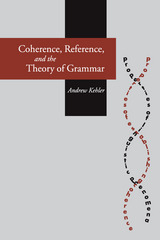
In this book, Andrew Kehler provides an analysis of coherence relationships between utterances that is rooted in three types of 'connection among ideas' first articulated by the philosopher David Hume—Resemblance, Cause or Effect, and Contiguity. Kehler then shows how these relationships affect the distribution of a variety of linguistic phenomena, including verb phrase ellipsis, gapping, extraction from coordinate structures, tense, and pronominal reference. In each of these areas, Kehler demonstrates how the constraints imposed by linguistic form interact with those imposed by the process of establishing coherence to explain data that has eluded previous analyses. his book will be of interest to researchers from the broad spectrum of disciplines from which discourse is studied, as well as those working in syntax, semantics, computational linguistics, psycholinguistics, and philosophy of language.
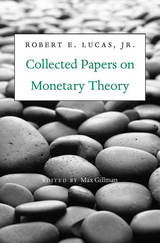
Robert Lucas is one of the outstanding monetary theorists of the past hundred years. Along with Knut Wicksell, Irving Fisher, John Maynard Keynes, James Tobin, and Milton Friedman (his teacher), Lucas revolutionized our understanding of how money interacts with the real economy of production, consumption, and exchange.
Lucas’s contributions are both methodological and substantive. Methodologically, he developed dynamic, stochastic, general equilibrium models to analyze economic decision-makers operating through time in a complex, probabilistic environment. Substantively, he incorporated the quantity theory of money into these models and derived its implications for money growth, inflation, and interest rates in the long run. He also showed the different effects of anticipated and unanticipated changes in the stock of money on economic fluctuations, and helped to demonstrate that there was not a long-run trade-off between unemployment and inflation (the Phillips curve) that policy-makers could exploit.
The twenty-one papers collected in this volume fall primarily into three categories: core monetary theory and public finance, asset pricing, and the real effects of monetary instability. Published between 1972 and 2007, they will inspire students and researchers who want to study the work of a master of economic modeling and to advance economics as a pure and applied science.
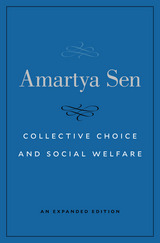
Originally published in 1970, this classic study has been recognized for its groundbreaking role in integrating economics and ethics, and for its influence in opening up new areas of research in social choice, including aggregative assessment. It has also had a large influence on international organizations, including the United Nations, notably in its work on human development. The book showed that the “impossibility theorems” in social choice theory—led by the pioneering work of Kenneth Arrow—do not negate the possibility of reasoned and democratic social choice.
Sen’s ideas about social choice, welfare economics, inequality, poverty, and human rights have continued to evolve since the book’s first appearance. This expanded edition preserves the text of the original while presenting eleven new chapters of fresh arguments and results.
“Expanding on the early work of Condorcet, Pareto, Arrow, and others, Sen provides rigorous mathematical argumentation on the merits of voting mechanisms…For those with graduate training, it will serve as a frequently consulted reference and a necessity on one’s book shelf.”
—J. F. O’Connell, Choice

In a provocative book-length essay, Patricia Lynne argues that most programmatic assessment of student writing in U.S. public and higher education is conceived in the terms of mid-20th century positivism. Since composition as a field had found its most compatible home in constructivism, she asks, why do compositionists import a conceptual frame for assessment that is incompatible with composition theory?
By casting this as a clash of paradigms, Lynne is able to highlight the ways in which each theory can and cannot influence the shape of assessment within composition. She laments, as do many in composition, that the objectively oriented paradigm of educational assessment theory subjugates and discounts the very social constructionist principles that empower composition pedagogy. Further, Lynne criticizes recent practice for accommodating the big business of educational testing—especially for capitulating to the discourse of positivism embedded in terms like "validity" and "reliability." These terms and concepts, she argues, have little theoretical significance within composition studies, and their technical and philosophical import are downplayed by composition assessment scholars.
There is a need, Lynne says, for terms of assessment that are native to composition. To open this needed discussion within the field, she analyzes cutting-edge assessment efforts, including the work of Broad and Haswell, and she advances a set of alternate terms for evaluating assessment practices, a set of terms grounded in constructivism and composition.
Coming to Terms is ambitious and principled, and it takes a controversial stand on important issues. This strong new volume in assessment theory will be of serious interest to assessment specialists and their students, to composition theorists, and to those now mounting assessments in their own programs.
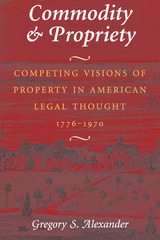
In demonstrating how the understanding of property as a private basis for the public good has competed with the better-known market-oriented conception, Alexander radically rewrites the history of property, with significant implications for current political debates and recent Supreme Court decisions.
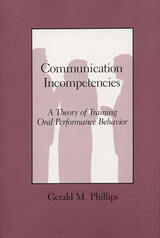
Gerald M. Phillips draws on his twenty-five-year, five-thousand-client experience with the Pennsylvania State University Reticence Program to present a new theory of modification of “inept” communication behavior.
That experience has convinced Phillips that communication is arbitrary and rulebound rather than a process of inspiration. He demonstrates that communication problems can be described as errors that can be detected and classified in order to fit a remediation pattern. Regardless of the source of error, the remedy is to train the individual to avoid or eliminate errors—thus, orderly procedure will result in competent performance.
Inept communicators must be made aware of the obligations and constraints imposed by deep structures that require us to achieve a degree of formal order in our language, without which our discourse becomes incomprehensible.

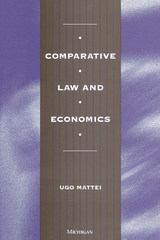
Mattei shows how concepts from economics can be applied to the study of comparative law. He then applies the concepts to several significant problems in comparative law, including the history and sources of law, differences between civil and common law systems, and the reasons for legal change and the movement of law from one country to another. He looks at specific problems in property, contracts, and trust law. Finally he uses the insights he has developed to understand the issues involved in changing law in developing countries and in formerly socialist countries.
This book will be of interest to scholars of law, economics, and development, as well as those interested in transformation in formerly communist states.
Ugo Mattei is Alfred and Hanna Fromm Professor of International and Comparative Law, Hastings College of Law, University of California; and Professor of Civil Law, University of Trento.
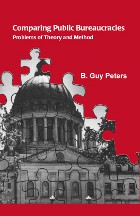
The comparative study of public policy once promised to make major contributions to our understanding of government. Much of that promise now appears unfulfilled. What accounts for this decline in intellectual fortunes and change in intellectual fashion? Comparing Public Bureaucracies seeks to understand why. One of the principal answers is that there is no readily accepted and dependent variable that would allow comparative public administration to conform to the usual canons of social research. In contrast, comparative public policy has a ready-made dependent variable in public expenditure.
Peters discusses four possible dependent variables for comparative public administration. The first is personnel—the number and type of people who work for government. Second, the number and type of organizations that form government can suggest a great deal about the structure of government. Third, the behavior of members is obviously important for understanding what actually happens in government—such as the extents to which bureaucracies approximate the budget-maximizing behavior posited by economists. Ginally, the relative power of civil servants in the policymaking process is a major factor in institutional politics in contemporary industrial societies.
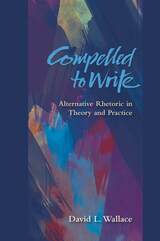
David Wallace argues that any understanding of writing studies must include the conception of discourse as an embodied force with real consequences for real people. Informed in important ways by queer theory, Wallace calls to account users of dominant discourses and at the same time articulates a theory base from which to interpret "alternative rhetoric."
To examine the practice of writing from varied margins of society, Compelled to Write offers careful readings of four exemplar American writers, each of whom felt compelled within their own time and place to write in response to systemic injustices in American society.
Sarah Grimké, a privileged white woman advocating for abolition, is forced to defend her right to speak as a woman; Frederick Douglass begins his public career almost as a curiosity (the articulate ex-slave) and ends it as one of the most important rhetors in American history; Gloria Anzaldúa writes not only in multiple languages and dialects but from marginalized positions related to gender, race, class, sexual identity, and physical abled-ness; David Sedaris uses his privileged position as a middle-class white male humorist to speak unabashedly of his sexuality, his addictions, and obsessive-compulsive personality disorder.
Through these writers, Wallace explores a range of strategies that comprise alternative rhetorical practice, and demonstrates how such practice is inflected by social constraints on rhetorical agency and by how writers employ alternative discourses to resist those constraints. Grounding and personalizing Compelled to Write with rich material from his own teaching and his own experience, Wallace considers a number of implications for teachers of writing.
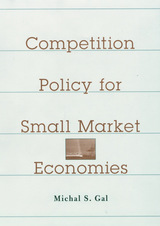
For the most part, competition policy literature has focused on large economies. Yet the economic paradigms on which such policies are based do not necessarily apply to small market economies. This book demonstrates that optimal competition policy is very much dependent on the size of an economy. Whether and how firms compete is a matter of the natural conditions of the markets in which firms operate. A critical feature of small economies is the concentrated nature of many of their markets, which are often protected by high entry barriers. Competition policy must be designed to deal effectively with these unique obstacles to competition. Accordingly, applying the same competition policy to all economies alike may be contrary to the policy's goals.
Michal Gal's thorough analysis shows the effects of market size on competition policy, ranging from rules of thumb to more general policy prescriptions, such as goals and remedial tools. Competition policy in small economies is becoming increasingly important, since the number of small jurisdictions adopting such policy is rapidly growing. Gal's focus extends beyond domestic competition policy to the evaluation of the current trend toward the worldwide harmonization of policies. This book will provide important guidance to academics, policy makers, and practitioners of competition policy as well as to anyone interested in the globalization of competition laws.
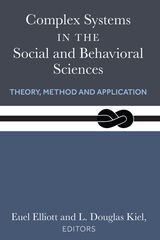
Complexity Systems in the Social and Behavioral Sciences provides a sophisticated yet accessible account of complexity science or complex systems research. Phenomena in the behavioral, social, and hard sciences all exhibit certain important similarities consistent with complex systems. These include the concept of emergence, sensitivity to initial conditions, and interactions between agents in a system that yield unanticipated, nonlinear outcomes. The topics discussed range from the implications for artificial intelligence and computing to questions about how to model complex systems through agent-based modeling, to complex phenomena exhibited in international relations, and in organizational behavior. This volume will be an invaluable addition for both the general reader and the specialist, offering new insights into this fascinating area of research.
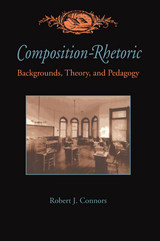
Connors provides a history of composition and its pedagogical approaches to form, genre, and correctness. He shows where many of the today’s practices and assumptions about writing come from, and he translates what our techniques and theories of teaching have said over time about our attitudes toward students, language and life.
Connors locates the beginning of a new rhetorical tradition in the mid-nineteenth century, and from there, he discusses the theoretical and pedagogical innovations of the last two centuries as the result of historical forces, social needs, and cultural shifts.
This important book proves that American composition-rhetoric is a genuine, rhetorical tradition with its own evolving theria and praxis. As such it is an essential reference for all teachers of English and students of American education.
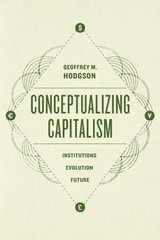
With Conceptualizing Capitalism, Geoffrey M. Hodgson offers readers a more precise conceptual framework. Drawing on a new theoretical approach called legal institutionalism, Hodgson establishes that the most important factor in the emergence of capitalism—but also among the most often overlooked—is the constitutive role of law and the state. While private property and markets are central to capitalism, they depend upon the development of an effective legal framework. Applying this legally grounded approach to the emergence of capitalism in eighteenth-century Europe, Hodgson identifies the key institutional developments that coincided with its rise. That analysis enables him to counter the widespread view that capitalism is a natural and inevitable outcome of human societies, showing instead that it is a relatively recent phenomenon, contingent upon a special form of state that protects private property and enforces contracts. After establishing the nature of capitalism, the book considers what this more precise conceptual framework can tell us about the possible future of capitalism in the twenty-first century, where some of the most important concerns are the effects of globalization, the continuing growth of inequality, and the challenges to America’s hegemony by China and others.

Scholars representing the fields of political science, philosophy, history, law, literature, and cultural studies devote essays to the work of Nietzsche, Weber, Heidegger, Lukács, Schmitt, Marcuse, Adorno, and Habermas. They also discuss the writings of such figures as Brecht and Freud, who are not primarily thought of as political theorists, and explore the thought of Helmut Plessner and reformist theorists from East Germany who have been little studied in the English language. In the process of debating the nature and responsibilities of the modern state in an era of mass politics, unparalleled military technology, capacity for surveillance, and global media presence, the contributors question whether technology is best understood as an instrument of human design and collective control or as an autonomous entity that not only has a will and life of its own but one that forms the very fabric of modern humanity.
Contributors. Seyla Benhabib, Richard J. Bernstein, Peter C. Caldwell, Richard Dienst, David Dyzenhaus, Andrew Feenberg, Nancy S. Love, John P. McCormick, Jan-Werner Müller, Gia Pascarelli, William E. Scheuerman, Steven B. Smith, Tracy B. Strong, Richard Wolin
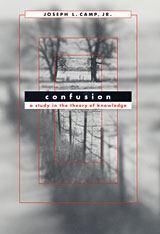
Everyone has mistaken one thing for another, such as a stranger for an acquaintance. A person who has mistaken two things, Joseph L. Camp argues, even on a massive scale, is still capable of logical thought. In order to make that idea precise, one needs a logic of confused thought that is blind to the distinction between the objects that have been confused. Confused thought and language cannot be characterized as true or false even though reasoning conducted in such language can be classified as valid or invalid.
To the extent that philosophers have addressed this issue at all, they take it for granted that confusion is a kind of ambiguity. Camp rejects this notion; his fundamental claim is that confusion is not a mental state. To attribute confusion to someone is to take up a paternalistic stance in evaluating his reasoning. Camp proposes a novel characterization of confusion, and then demonstrates its fruitfulness with several applications in the history of philosophy and the history of science.
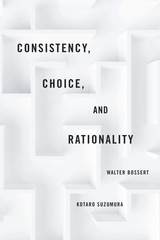
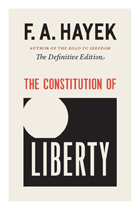
From the $700 billion bailout of the banking industry to president Barack Obama’s $787 billion stimulus package to the highly controversial passage of federal health-care reform, conservatives and concerned citizens alike have grown increasingly fearful of big government. Enter Nobel Prize–winning economist and political theorist F. A. Hayek, whose passionate warning against empowering states with greater economic control, The Road to Serfdom, became an overnight sensation last summer when it was endorsed by Glenn Beck. The book has since sold over 150,000 copies.
The latest entry in the University of Chicago Press’s series of newly edited editions of Hayek’s works, The Constitution of Liberty is, like Serfdom, just as relevant to our present moment. The book is considered Hayek’s classic statement on the ideals of freedom and liberty, ideals that he believes have guided—and must continue to guide—the growth of Western civilization. Here Hayek defends the principles of a free society, casting a skeptical eye on the growth of the welfare state and examining the challenges to freedom posed by an ever expanding government—as well as its corrosive effect on the creation, preservation, and utilization of knowledge. In opposition to those who call for the state to play a greater role in society, Hayek puts forward a nuanced argument for prudence. Guided by this quality, he elegantly demonstrates that a free market system in a democratic polity—under the rule of law and with strong constitutional protections of individual rights—represents the best chance for the continuing existence of liberty.
Striking a balance between skepticism and hope, Hayek’s profound insights are timelier and more welcome than ever before. This definitive edition of The Constitution of Liberty will give a new generation the opportunity to learn from his enduring wisdom.

Constructions of the Real gathers a wide range of writing from nonfiction and documentary filmmakers from around the world who undertake theoretically informed practice and think through making. The filmmakers and writers featured here explore the rich space between the academy and industry, and they reflect on, interrogate, and explicate their filmmaking practices in relation to questions of form, content, and process. Engaging with current debates about the role of creative scholarship, the contributors make a powerful claim for nonfiction filmmaking as a knowledge-making practice for revealing, critiquing, and interpreting the world.
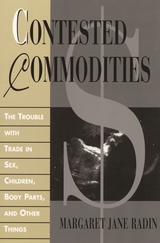
Not only are there willing buyers for body parts or babies, Radin observes, but some desperately poor people would be willing sellers, while better-off people find such trades abhorrent. Radin observes that many such areas of contested commodification reflect a persistent dilemma in liberal society: we value freedom of choice and simultaneously believe that choices ought to be restricted to protect the integrity of what it means to be a person. She views this tension as primarily the result of underlying social and economic inequality, which need not reflect an irreconcilable conflict in the premises of liberal democracy.
As a philosophical pragmatist, the author therefore argues for a conception of incomplete commodification, in which some contested things can be bought and sold, but only under carefully regulated circumstances. Such a regulatory regime both symbolizes the importance of nonmarket value to personhood and aspires to ameliorate the underlying conditions of inequality.
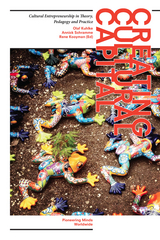
Parallel to these research and policy interests, academic institutions and professional organizations have begun to develop training programs for future professionals in the creative and cultural industries. In this book, more than fifty scholars from across the globe shed light on this phenomenon of cultural entrepreneurship. Readers will find conceptual frameworks for building new programs for the creative industries, examples of pedagogical approaches and skills-based training, and concrete examples of program and course implementation.
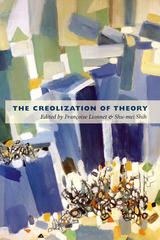
Contributors. Étienne Balibar, Dominique Chancé, Pheng Cheah, Leo Ching, Liz Constable, Anne Donadey, Fatima El-Tayeb, Julin Everett, Édouard Glissant, Barnor Hesse, Ping-hui Liao, Françoise Lionnet, Walter Mignolo, Andrea Schwieger Hiepko, Shu-mei Shih
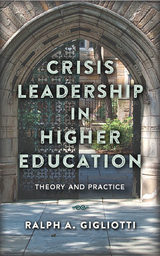

From experimental and concert dance to more popular expressions, Martin engages a range of performances and demonstrates how a critical reflection on dance helps promote fluency in the language of mobilization that political theory alludes to yet rarely speaks. He explores how Bill T. Jones’s Last Supper at Uncle Tom’s Cabin/The Promised Land defies attempts to separate social ideas from aesthetic concerns and celebrates multiculturalism in the face of a singular national culture; he studies the choreography in rapper Ice Cube’s video “Wicked,” which confronts racialized depictions of violent crime; and he discusses how racial difference is negotiated by analyzing a hip hop aerobics class in a nonblack environment.
Revealing how mastery of modern dance technique teaches an individual body to express cultural difference and display its intrinsic diversity, Critical Moves concludes with a reflection on the contribution dance studies can make to other fields within cultural studies and social sciences. As such it becomes an occasion to rethink the terms of history and agency, multiculturalism and nationalism, identity and political economy. This book will appeal not only to scholars and practitioners of dance, but also to a wide cross-section of people concerned with the study of political theory and the history of social movements.
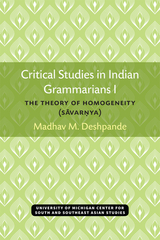
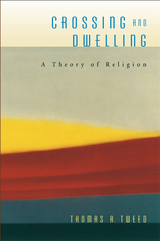
Beginning with a Cuban Catholic ritual in Miami, this book takes readers on a momentous theoretical journey toward a new understanding of religion. At this historical moment, when movement across boundaries is of critical importance for all areas of human life—from media and entertainment to economy and politics—Thomas Tweed offers a powerful vision of religion in motion, dynamic, alive with crossings and flows.
A deeply researched, broadly gauged, and vividly written study of religion such as few American scholars have ever attempted, Crossing and Dwelling depicts religion in place and in movement, dwelling and crossing. Tweed considers how religion situates devotees in time and space, positioning them in the body, the home, the homeland, and the cosmos. He explores how the religious employ tropes, artifacts, rituals, and institutions to mark boundaries and to prescribe and proscribe different kinds of movements across those boundaries; and how religions enable and constrain terrestrial, corporeal, and cosmic crossings.
Drawing on insights from the natural and social sciences, Tweed’s work is grounded in the gritty particulars of distinctive religious practices, even as it moves toward ideas about cross-cultural patterns. At a time when scholars in many fields shy away from generalizations, this book offers a responsible way to think broadly about religion, a topic that is crucial for understanding the contemporary world. Lucid in explanations, engaging in presentation, rich in examples, Crossing and Dwelling has profound implications for the study and teaching of religion in our day.
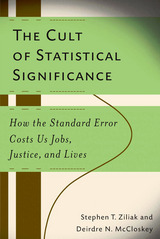
“McCloskey and Ziliak have been pushing this very elementary, very correct, very important argument through several articles over several years and for reasons I cannot fathom it is still resisted. If it takes a book to get it across, I hope this book will do it. It ought to.”
—Thomas Schelling, Distinguished University Professor, School of Public Policy, University of Maryland, and 2005 Nobel Prize Laureate in Economics
“With humor, insight, piercing logic and a nod to history, Ziliak and McCloskey show how economists—and other scientists—suffer from a mass delusion about statistical analysis. The quest for statistical significance that pervades science today is a deeply flawed substitute for thoughtful analysis. . . . Yet few participants in the scientific bureaucracy have been willing to admit what Ziliak and McCloskey make clear: the emperor has no clothes.”
—Kenneth Rothman, Professor of Epidemiology, Boston University School of Health
The Cult of Statistical Significance shows, field by field, how “statistical significance,” a technique that dominates many sciences, has been a huge mistake. The authors find that researchers in a broad spectrum of fields, from agronomy to zoology, employ “testing” that doesn’t test and “estimating” that doesn’t estimate. The facts will startle the outside reader: how could a group of brilliant scientists wander so far from scientific magnitudes? This study will encourage scientists who want to know how to get the statistical sciences back on track and fulfill their quantitative promise. The book shows for the first time how wide the disaster is, and how bad for science, and it traces the problem to its historical, sociological, and philosophical roots.
Stephen T. Ziliak is the author or editor of many articles and two books. He currently lives in Chicago, where he is Professor of Economics at Roosevelt University. Deirdre N. McCloskey, Distinguished Professor of Economics, History, English, and Communication at the University of Illinois at Chicago, is the author of twenty books and three hundred scholarly articles. She has held Guggenheim and National Humanities Fellowships. She is best known for How to Be Human* Though an Economist (University of Michigan Press, 2000) and her most recent book, The Bourgeois Virtues: Ethics for an Age of Commerce (2006).
READERS
Browse our collection.
PUBLISHERS
See BiblioVault's publisher services.
STUDENT SERVICES
Files for college accessibility offices.
UChicago Accessibility Resources
home | accessibility | search | about | contact us
BiblioVault ® 2001 - 2024
The University of Chicago Press









